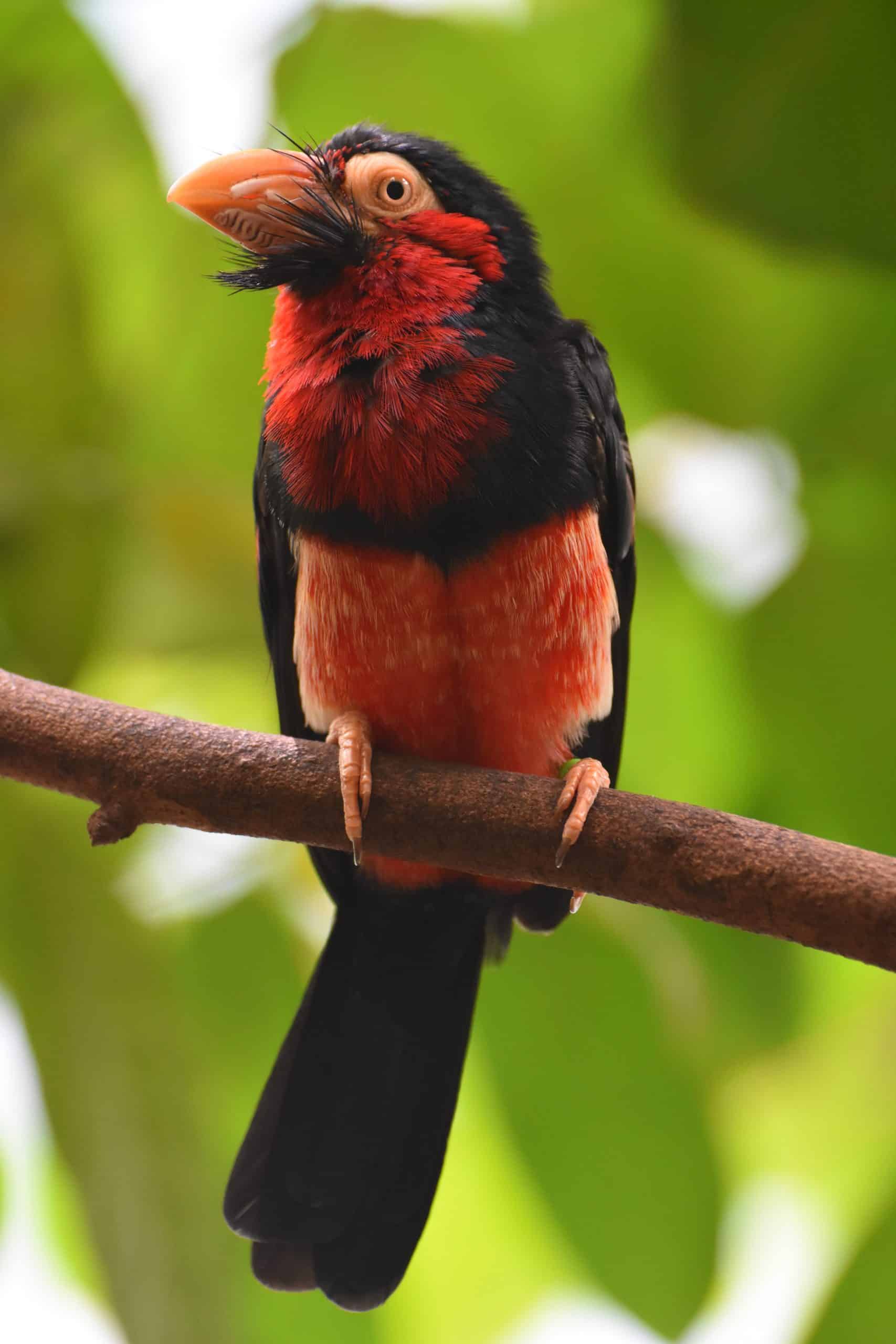Lee Richardson Zoo Species Spotlight: Bearded Barbet
In this series, we spotlight one of the many fascinating creatures that live at the Lee Richardson Zoo. In this blog, we’ll take a look at the beautiful Bearded Barbet!
The Basics
- Common Name: Bearded Barbet
- Scientific Name: Lybuis dubuis
- Hometown: Tropical west Africa
- Current Address: Lee Richardson Zoo – Aviary
- Conservation Status: Least concern
Meet the Bearded Barbet
One of the more striking creatures flying around the Lee Richardson Zoo aviary is the Bearded Barbet. This bird gets its peculiar name from the thick black bristles which grow near its bill – it looks just like a beard!
If you can spot a Bearded Barbet, you will notice the thick, heavy bill, which is similar – but smaller than – the bills of their cousins, the Toucan. Some studies suggest large bills on birds help to regulate body temperature because they can’t sweat.
Identification
At the zoo, spotting the Bearded Barbet should be fairly easy due to its big yellow beak and black beard. Its feathers are red and black with yellow patches around the eyes, and its body is medium sized (about 10 inches) with a short neck and tail. Males and females look the same.
When you’re in the aviary, close your eyes and listen. You might be able to find this bird by its call, which is a growling scrawk. Listen here to know what they sound like.
Lifestyle
Other than in zoos, the Bearded Barbet lives exclusively in the trees, gardens, and orchards of tropical west Africa. They set up nests in tree cavities, and often form small social groups of 4 to 5 birds, sometimes living together in a single tree hollow.
When it’s time to reproduce, female Bearded Barbets usually lay two white eggs, which are then protected and incubated for up to 15 days. Both parents share nest-watching duties.
Diet
Bearded Barbets eat all kinds of fruits and vegetables, but especially love figs. They usually eat wild fruits and vegetables, but can also be seen visiting orchards and plantations to feed on crops grown by farmers – especially fig plantations.
These birds tend to eat fruit whole, then regurgitate the indigestible seeds later on. This makes the Bearded Barbet an important part of the ecosystem by helping to disperse seeds through the forest. Easy work for the trees!
Bearded Barbets also eat a variety of insects such as ants, dragonflies, and scorpions, and even occasionally eat frogs, geckos, and other lizards. When the young are born, they are fed mostly insects until they are ready to go out on their own.
Go Take a Look
If you would like to see a Bearded Barbet up close, head down to the Lee Richardson Zoo and meet one in person. This beautiful bird can be found in the Aviary. The zoo is open from 8 a.m. to 5 p.m., and admission is free! For more information, Check out their website here.



